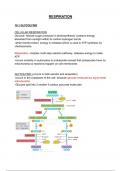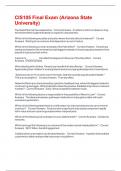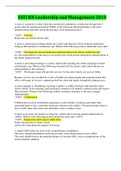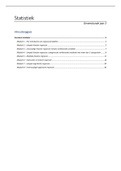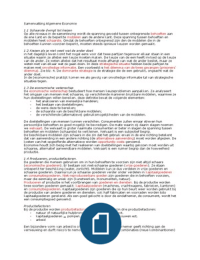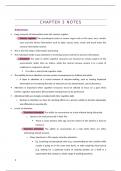Creep and Fatigue degeneration definitions
Creep:
Creep is a time-dependent deformation or strain that occurs in a material or structure when it is
subjected to a sustained load over an extended period.
In construction, creep typically affects materials like concrete and metals, and it can lead to the
gradual deformation of structural components over time.
It is often associated with long-term loading, such as the weight of buildings or bridges, and it can
cause structures to settle or deform slowly, which can be problematic for the long-term stability and
safety of a construction project.
The UK has strict building codes and standards that address creep-related concerns to ensure the
safety and durability of structures. These standards may specify limits on allowable creep
deformation, design load factors, and other parameters to mitigate the effects of creep.
Creep Deformation
Concrete Foundations: In building construction, concrete is commonly used for foundations.
Over time, the weight of the building and any additional loads placed on it can lead to creep
deformation in the concrete. This may cause the foundation to settle or sink gradually,
resulting in uneven or sloping floors and potential structural issues.
Prestressed Concrete Structures: Creep is a critical consideration in prestressed concrete
structures, such as bridges and beams. The long-term sustained loads can lead to gradual
deformation, affecting the structural integrity and causing deflections beyond acceptable
limits.
High-Rise Buildings: Tall buildings experience significant vertical and horizontal loads due to
their own weight, wind, and other factors. The creep deformation in the structural
components of these buildings can lead to changes in their shape and load distribution over
time, potentially requiring adjustments or maintenance.
Geotechnical Engineering: In geotechnical engineering, soil creep can be a concern. Over
time, soil can slowly flow or deform under the weight of embankments, retaining walls, or
slopes. This can lead to subsidence, landslides, or other stability issues.
Bridge Piers and Abutments: Bridge piers and abutments are subjected to long-term loads
from the weight of the bridge and traffic loads. Creep deformation in the materials can
result in tilting, settlement, or other structural changes, affecting the safety and functionality
of the bridge.
Fatigue:
Fatigue is a type of material failure that occurs when a material or structure is subjected to cyclic or
repeated loading, such as fluctuating stresses, vibrations, or alternating forces.
In construction, fatigue is particularly relevant in applications like bridges, aircraft components, and
other structures where cyclic loading is common.
Fatigue can lead to the growth of cracks or defects in the material over time, eventually resulting in
catastrophic failure if not addressed. This type of failure can be especially dangerous in critical
infrastructure.
Creep:
Creep is a time-dependent deformation or strain that occurs in a material or structure when it is
subjected to a sustained load over an extended period.
In construction, creep typically affects materials like concrete and metals, and it can lead to the
gradual deformation of structural components over time.
It is often associated with long-term loading, such as the weight of buildings or bridges, and it can
cause structures to settle or deform slowly, which can be problematic for the long-term stability and
safety of a construction project.
The UK has strict building codes and standards that address creep-related concerns to ensure the
safety and durability of structures. These standards may specify limits on allowable creep
deformation, design load factors, and other parameters to mitigate the effects of creep.
Creep Deformation
Concrete Foundations: In building construction, concrete is commonly used for foundations.
Over time, the weight of the building and any additional loads placed on it can lead to creep
deformation in the concrete. This may cause the foundation to settle or sink gradually,
resulting in uneven or sloping floors and potential structural issues.
Prestressed Concrete Structures: Creep is a critical consideration in prestressed concrete
structures, such as bridges and beams. The long-term sustained loads can lead to gradual
deformation, affecting the structural integrity and causing deflections beyond acceptable
limits.
High-Rise Buildings: Tall buildings experience significant vertical and horizontal loads due to
their own weight, wind, and other factors. The creep deformation in the structural
components of these buildings can lead to changes in their shape and load distribution over
time, potentially requiring adjustments or maintenance.
Geotechnical Engineering: In geotechnical engineering, soil creep can be a concern. Over
time, soil can slowly flow or deform under the weight of embankments, retaining walls, or
slopes. This can lead to subsidence, landslides, or other stability issues.
Bridge Piers and Abutments: Bridge piers and abutments are subjected to long-term loads
from the weight of the bridge and traffic loads. Creep deformation in the materials can
result in tilting, settlement, or other structural changes, affecting the safety and functionality
of the bridge.
Fatigue:
Fatigue is a type of material failure that occurs when a material or structure is subjected to cyclic or
repeated loading, such as fluctuating stresses, vibrations, or alternating forces.
In construction, fatigue is particularly relevant in applications like bridges, aircraft components, and
other structures where cyclic loading is common.
Fatigue can lead to the growth of cracks or defects in the material over time, eventually resulting in
catastrophic failure if not addressed. This type of failure can be especially dangerous in critical
infrastructure.


